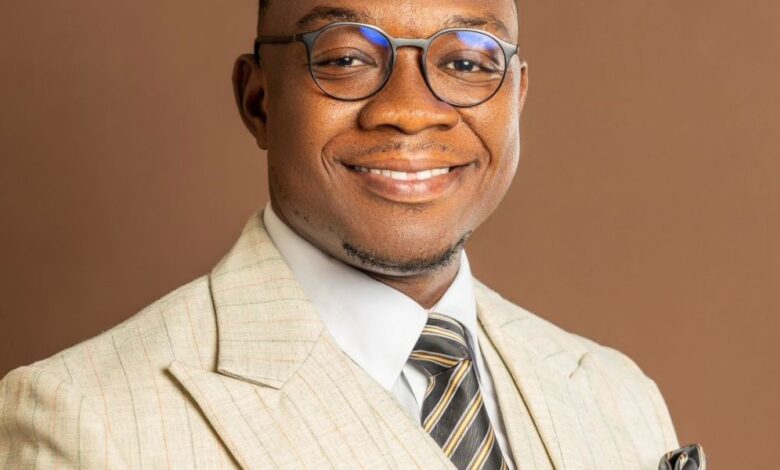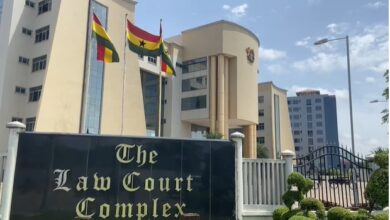The Trauma of Our ‘Specialist’ Hospital

If you read my last article titled Dying to be Treated: Ghana on Life Support, you will realize that the title of this article was originally a subheading in the former piece. For years, I restrained myself from writing directly about the Winneba Trauma and Specialist Hospital. Instead, I used NYCE FM, the radio station I manage, to advocate for reforms at the facility. But after my last article, I received countless calls from people eager to share their painful experiences at the Trauma and Specialist Hospital.
The Winneba Trauma and Specialist Hospital was conceived as a beacon of hope. Built as a turnkey project by EN-Project, it was initially designed as a district hospital but later converted into a specialized referral facility. Today, it serves as the last point of referral for Efutu, surrounding districts, and even patients from Ga South Municipality. It also temporarily functions as the Central Regional Hospital. By mandate, this facility should be well-equipped, adequately staffed, and capable of delivering specialist care.
Yet for many who walk through its doors, the experience is far from what the name suggests. Instead of healing, patients often encounter neglect, unsafe practices, and trauma delivered not by illness, but by the very system meant to save them.
I have many stories to tell—both personal experiences and those of others—but for the purpose of this article, I will share two deeply troubling cases I personally witnessed.
Cynthia’s Mother
Cynthia is a senior colleague whom I call “Mum.” On December 24th, she welcomed her mother from Pokuase, Accra, for the Christmas holidays. Almost immediately, she noticed her mother looked unwell. Out of caution, knowing her mother had underlying conditions, she took her to the Trauma and Specialist Hospital.
Her mother was admitted to the emergency unit. Nurses attended to her initially, but her condition did not improve. After a few days, though she was still unwell, she was moved to the female ward, where her health began to deteriorate rapidly. During the holiday period, doctors were conspicuously absent. Nurses only called doctors if they considered a case an “emergency.”
On December 31st, Cynthia, watching her mother weaken to the point of not eating or talking, pleaded with the nurses to call a doctor. Struggling to breathe, her mother clearly needed oxygen, but when Cynthia suggested this, a nurse dismissed her, saying she was “not a doctor” and had no right to dictate care.
Desperate, Cynthia requested her mother be referred to another hospital in Accra. Again, the nurse refused. It was only after Cynthia called her husband, a respected and influential figure in Winneba, that the situation changed. When the husband arrived and pressed the issue, the nurse finally called a doctor, who immediately instructed that oxygen be given. Almost instantly, her mother’s condition improved.
When the doctor eventually came in person, something even more alarming was discovered: lab results taken on the first day of admission were still lying in her folder, untouched. A new test was ordered, and once results came back, the doctor prescribed medicine. Cynthia and her husband had to travel to Kasoa to purchase it. When the drug was administered, her mother’s condition improved drastically, and she was soon discharged.
She later vowed never to step foot in the Trauma and Specialist Hospital again. Who could blame her? A life that could have been lost was saved only because of external influence, not because the system worked.
But what if Cynthia’s husband had not intervened? What would have happened if she had been alone, without anyone influential to call, without anyone to amplify her cries for help? Would her mother have quietly slipped away, another preventable death hidden behind the hospital walls?
And what about the many patients who come to the Trauma and Specialist Hospital every day, armed with nothing but hope and faith in the system? The market woman, the fisherman, the mason, the student, ordinary people who have no powerful connections, no voice loud enough to demand urgent care. For them, the stakes are brutally high. They wait, sometimes in agony, for attention that comes too late, or never comes at all.
Lisa’s Asthma Attack
Lisa, a U.S. citizen who was working in Winneba, also had a harrowing experience. She called me when she was unwell, and I accompanied her to the Trauma and Specialist Hospital. She arrived in the middle of a severe asthma attack, struggling to breathe. Shockingly, no medical staff examined her lungs or ordered an x-ray. Instead, they assumed she had malaria.
She was sent to the lab for a malaria test, where matters worsened. The staff member drawing her blood neither washed his hands nor wore gloves. He failed to clean the puncture site with alcohol, and when blood spilled onto her arm, he shockingly drew it back into the needle, an unsanitary act that risked both contamination and infection.
Back at the emergency ward, Lisa reiterated that she did not have malaria and clearly told the nurses she was allergic to penicillin. A prescription was given, and when I collected the medicine for the nurses, Lisa insisted on reading the label before it was administered. To our horror, it contained penicillin. She refused, and another drug was requested, but it was brought, it also contained penicillin. Fearful for her life, she declined again. Instead, they placed her on an unexplained IV of paracetamol, while her condition worsened.
For more than an hour, no doctor attended to her. When the correct asthma medication was finally prescribed, the staff could not locate a nebulizer. When they eventually produced one, the mask and tubing were dirty and looked previously used. Desperate to breathe, Lisa administered three treatments herself, as the staff struggled to operate the machine.
Later, when she was preparing to leave, the nurses insisted on listening to her lungs, something they should have done upon arrival. Even at discharge, they tried again to prescribe penicillin, until she refused and demanded azithromycin. Lisa left the hospital shaken, convinced that her survival depended not on professional care, but on her own vigilance and insistence. Her ability to read her medication labels, recognize her allergy, and demand the right treatment saved her life. But what about the countless patients who do not know their medical history, who cannot read the fine print on a prescription, or who lack the confidence to question doctors and nurses?
What happens to the rural farmer brought in by his children, too weak to speak, with no knowledge of the drugs being administered into his veins? What happens to the mother carrying a sick child, trusting blindly that whatever the nurse gives must surely be the right thing? What happens to the elderly woman who, unlike Lisa, does not know how to name her allergies, or the young man who cannot afford to refuse medication even when he suspects it is wrong?
These are the silent casualties of a system that places the burden of survival on patients rather than on professionals sworn to care for them. Their stories are rarely told, their deaths quietly explained away, and their families left with nothing but grief. The tragedy is not only in the mistakes made, but in the unequal chances of survival, where the educated, the assertive, or the connected may fight their way through, while the voiceless and vulnerable are left behind.
A Hospital of Trauma?
These are not isolated incidents. Though these cases happened more than three years ago, they expose deep cracks in the hospital’s service delivery: lack of urgency in emergencies, poor supervision, unsafe practices, and disregard for patient voices. For a hospital that bears the title “Trauma and Specialist,” the irony is cruel the trauma comes not from illness, but from the institution itself.
I continue to receive similar reports today. While I refrain from sharing unverified accounts, the Ministry of Health, the Ghana Health Service, and hospital management must act urgently. A facility serving as the interim Central Regional Hospital cannot subject patients to such indignity and risk. Staff training, supervision, emergency response protocols, and hygiene standards must be overhauled immediately.
The people of Effutu, the Central Region, and Ghana at large deserve better. Healthcare must be a sanctuary of hope, not a place where survival depends on luck, influence, or a patient’s stubborn will to live.
As I said in my last article: do everything within your power to stay healthy, because walking into a Ghanaian hospital is no guarantee of care. Until our leaders rise above slogans and invest in a responsive, accountable, and humane health system, we will continue burying our mothers, fathers, sisters, brothers, even our doctors, as victims of a system that failed them.
May God grant us long life with good health, because our system is not yet ready to do so.
Written by:¬ÝDr. Bismark Odum Sackey
¬Ý¬Ý¬Ý¬Ý¬Ý¬Ý¬Ý¬Ý¬Ý¬Ý¬Ý¬Ý¬Ý¬Ý¬Ý¬Ý¬Ý¬Ý¬Ý¬Ý¬ÝLecturer, UEW /Communications Consultant





